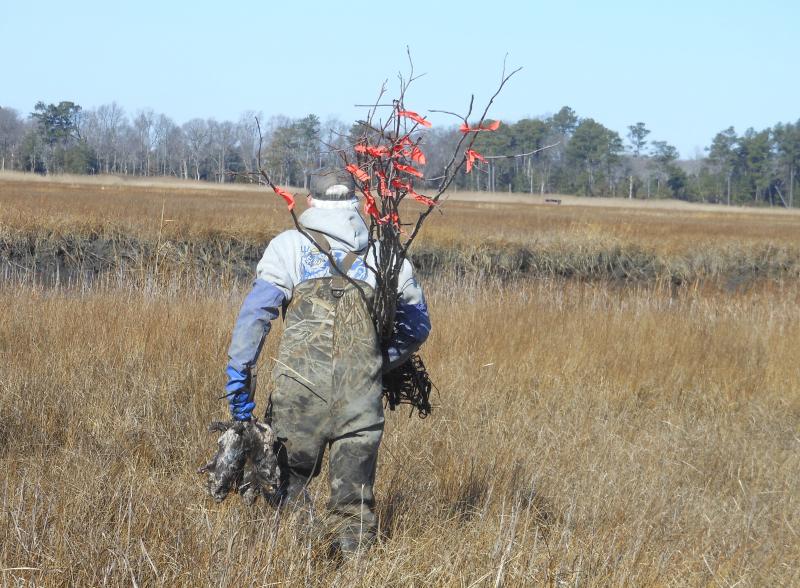It’s muskrat-eating season, and chances are, from Milford to Georgetown, if the Delaware delicacy finds itself on your plate, Argos Corner trapper Jimmy Tibbitt caught it.
The Cape Gazette spent Jan. 24 and Jan. 25 with Tibbitt as he set traps, collected muskrats, and prepared their bodies and furs for sale.
Muskrat trapping season in Sussex County runs from Dec. 15 to March 15. Tibbitt said he usually doesn’t start trapping until the first of February, but this year he was able to get out a little earlier.
Four nights into setting traps, Tibbitt had caught 96 muskrats on an area of marsh he wasn’t anticipating much. He was pretty excited about the good start early in the season. He said he’s hoping to catch 400 this year.
Tibbitt said he catches muskrats on about one-third of the traps he sets, which means he’ll need to set well over 1,000 traps.
Tibbitt, 50, said he’s been trapping since he was in high school. For the past 15 years, he’s trapped almost exclusively in the marshes that line Cedar Creek, but he said he’s trapped all over the county.
Muskrat trapping is dirty and physically demanding. Tibbitt wore chest waders and waterproof gloves that covered up to his biceps. On the firmest areas of shoreline, Tibbitt had to make his way through four inches of slick Cedar Creek muck. In the softest areas, he was thigh-deep.
“Some days, the only thing you get is a good Jane Fonda workout,” he said at one point, while pulling his leg out of knee-deep mud that from the loud sucking sound, was holding on to his appendage for dear life.
Tibbitt said he sells the meats to a few stores, and he also provides muskrats for many of the local hunting clubs and lodges that host muskrat eats this time of year.
“I don’t have any trouble selling them, because nobody else is doing it,” he said, with a smile.
In addition to the meat, Tibbitt, a waterman by trade, sells all the furs and musk glands from the males, but he said a person doesn’t get into trapping to become a millionaire. He said he’ll use the money to take his wife out to dinner, buy some gas or otherwise give him a little extra spending cash. He said he makes his bill-paying money when he’s out on the water fishing.
“I do this mainly because I’ve been doing it my whole life, and I like being out in the water,” he said. “If the fish are running, the muskrats can wait.”
Tibbitt motors up and down the creek looking for muskrat holes in his well-used jon boat, powered by an old Evinrude motor. If there’s a ditch running to the creek, he’ll anchor his boat to shore and set traps in it, but he said he’s got so much area to cover that he doesn’t venture much farther than that.
“I’m not out here to catch them all,” he said.
Tibbitt works the creek like a grid. He said he tries to set 50 or 60 traps going up and then another 50 going down in the same stretch. He’ll leave traps in a hole for up to a week if he’s getting lucky, but he keeps them moving.
Tibbitt cleans the muskrats with a quick wash in the creek and dries them out in the back of the truck on the way back home.
From snipping off the front paws to the final detachment from the tail, Tibbitt skins his muskrats with the precision of a surgeon and little wasted motion. He sharpens his knife every two or three. About halfway through skinning the 25 caught most recently, he takes a break to show off a pocket knife, sharpened down to a nub.
“That’s what happens after a couple thousand rats,” he said, laughing. “That was my favorite knife, too.”
Chris Flood has been working for the Cape Gazette since early 2014. He currently covers Rehoboth Beach and Henlopen Acres, but has also covered Dewey Beach and the state government. He covers environmental stories, business stories and random stories on subjects he finds interesting, and he also writes a column called Choppin’ Wood that runs every other week. He’s a graduate of the University of Maine and the Landing School of Boat Building & Design.





































































